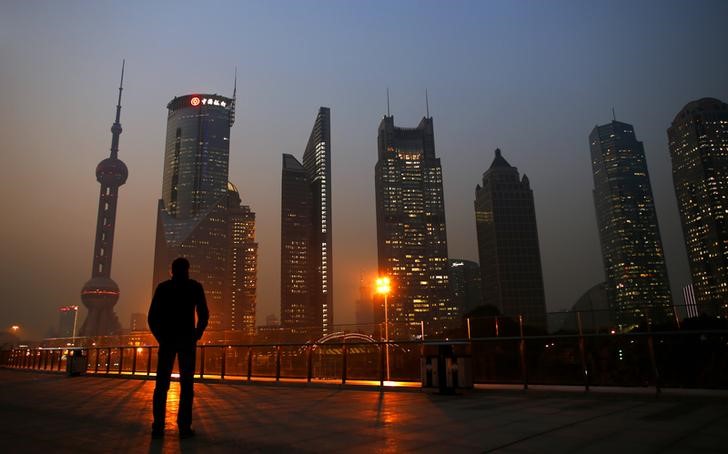BEIJING (Reuters) - China's fiscal spending rose 2.6 percent in May from a year earlier, slowing sharply from a 33.2 percent rise in April, the Ministry of Finance said on Thursday, as the government faces a tough job in spurring investment to support the slowing economy.
Overall spending by the central and local governments totalled 1.31 trillion yuan ($211.08 billion/136 billion pounds) in May, the ministry said.
The government has budgeted a fiscal deficit for 2015 equal to 2.3 percent of gross domestic product (GDP), but Finance Minister Lou Jiwei said in March that the real fiscal deficit would be 2.7 percent, the widest since 2009, after taking into account unspent amounts from previously allocated funds.
Local governments are struggling to cope with a mountain of debt and their tax receipts and land sales have taken a hit from the slowing economy and a property market downturn.
China's cabinet threatened to cut the 2016 budgets of local governments that do not spend most of their allocated cash this year, in a bid to harness as much fiscal support as possible for the cooling economy.
"The economic slowdown has affected the government's tax revenues while the property market is in the middle of cutting inventories, which in turn hit government land sales incomes," said Wen Bin, an economist at Minsheng Bank in Beijing.
"We expect government spending to pick up gradually in the coming months," he said.
Central government spending rose 8.6 percent from a year ago, slowing from 19.7 percent in April, while growth in local government spending slowed to 1.2 percent from 36.7 percent, the ministry said.
The sharper slowdown in local spending came after local governments "earmarked spending in advance in some key projects", the ministry said without giving further details.
For the first five months of 2015, fiscal expenditures rose 11.1 percent from a year ago.
A breakdown of the January-May figures showed spending on the environmental protection rose 29.7 percent from a year earlier, while spending on transportation rose 18.6 percent.
Expenditure on social security and employment climbed 18.5 percent and expenditure on housing benefits rose 13.9 percent.
Fiscal revenues grew 5 percent in May from a year earlier, slowing from a 8.2 percent rise in April.
Income tax receipts from manufacturers fell 8.7 percent in May from a year earlier, while revenues from property companies fell 11.7 percent, the ministry said.
China's economic growth slowed to a six-year low 7 percent in the first quarter as demand at home and abroad faltered, and recent data showed weakness persisted into the second quarter.
In a bid to ease the financial strains on local governments, China's finance ministry said on Wednesday it has approved a second batch of local government debt swaps worth 1 trillion yuan ($161.2 billion), doubling the size of the existing swap program announced in March.

($1 = 6.2062 Chinese yuan)